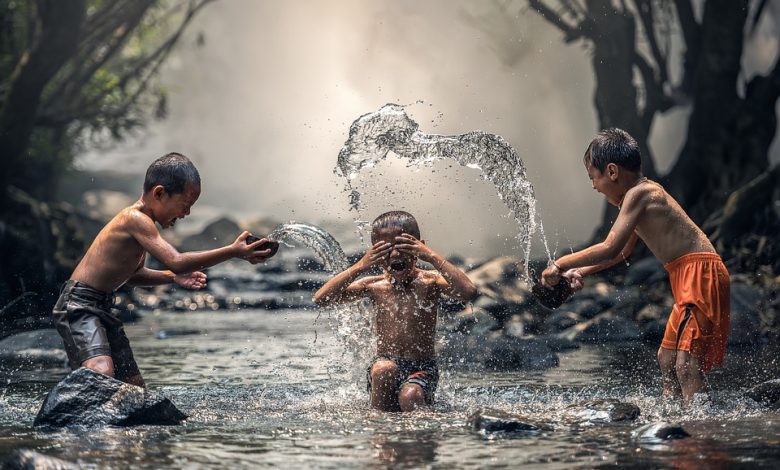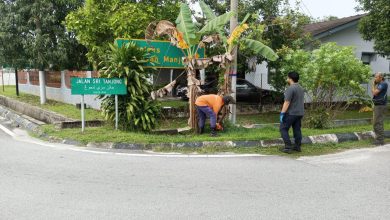Reflections on the State of Our Children


By Dato’ Dr Amar-Singh HSS, Consultant Paediatrician, Child-Disability Activist & Dr Farah Nini Dusuki, Children’s Commissioner
We write this on our Independence Day, our 67th. In two weeks, we will celebrate our 61st Malaysia Day. Both very meaningful and emotional days for us all.
67 years is a long time and it is important that we reflect about where we have come, the progress we have made as well as our shortcomings.
As a nation we have made significant economic progress. Access to education and healthcare, improved infrastructure and economic opportunities have offered many the opportunity to improve their family’s wellbeing. But we have left some behind. 67 years after independence we still see a significant proportion of our children living in poverty; many caught in the life-time-poverty-trap. The B20 community has much higher under five mortality rates and far lower education attainment. With the escalating cost of living, relative poverty has worsened and many families struggle every day. Many of us no longer speak of the B40 but the B60, as the bottom half of the middle class is also struggling.
Every child that continues to live in poverty is our collective shame as a nation. What is most frustrating is that we have the means, resources and services to end this, but have yet to do so. There is an urgent need to have a mapping of families at risk, the development of a comprehensive safety net that does not miss any, and sustained economic support to ensure food and economic security. Effective measures to get resources to them require government agencies to work in partnership with civil society organisations (CSOs). We must keep revising our ‘poverty line income’ (currently out of date) in tandem with the rising cost of living. We need to pay special emphasis on indigenous children, those living in Sabah and our inner cities ‘slum’ areas. The right to survival and optimal development, two key rights for every child, is still a problem to many.
All children require protection from harm and to be given a safe environment and home to live in. We are blessed that our nation remains peaceful and free from ongoing violence, and we pray for this to continue. However, child abuse appears to have worsened with an increase in reports and intensity of the violence. A larger number of abused children remain undetected and continue to suffer in silence. Online abuse of children is widespread. We have good legislation to support children – the Child Act 2001 (amended 2016) and Sexual Offences Against Children Act 2017 (SOAC) (amended 2023). But our Penal Code (Act 574) and other legislation have not been harmonised with the UNCRC nor the Child Act. Sadly, our child protection services remain limited. Doctors, Welfare Officers (JKM) and Police remain having limited training in child protection, causing children to suffer despite being in the protective web.
Safety of children on the road is another grave concern. From 2009 till 2021, there were close to 2,900 children aged 6 to 15 years old who were killed due to motorcycle riding. 87 of these were aged 6 to 10 years old. Although we have clear laws in different legislation for punishing parents for allowing children below 16 to ride motorcycles, these senseless deaths persist. The lack of prevention measures for childhood drowning is another concern.
The formation of a Children’s Development Department is a step in the right direction. But we urgently need to strengthen our child protection services. All healthcare professionals, Police and Welfare Department staff need to be formally trained in child protection and rights, according to our legislation. We desperately need adequate numbers of trained social workers to support the work; in this we are far behind countries in our region. As a stop-gap measure we could ‘deputise’ CSOs to support the work of the Welfare Department. The Child Protection Teams and the Child Welfare Teams created under the Child Act should be mobilised more for the same purpose.
Our nation has made education accessible to all citizens, with compulsory primary school. This is commendable and has had huge social, economic and health impacts. But we have faltered in our progress. We have a large school drop-out problem (see MOE data in Quick Facts 2022). Some children appear not to attend school and others, the stateless, refugees, asylum-seekers, undocumented and children in detention, are denied access to education. This is in conflict with the aspirations of our excellent Malaysian Education Blueprint and does not speak well of our humanity as a nation of 67 years. Children with disabilities struggle with obtaining inclusive education, and we lag far behind our neighbours in this respect. Implementation of inclusive education is poor, universe design for learning non-existent and support for teachers limited.
We need to be compassionate to ensure all children in our beloved nation have access to education. We must support the 15% of children with disabilities to receive full inclusion in mainstream education. The time for a reform of our education system, its policies and resources allocations are overdue.
The health of their children is at the heart of all parents. While we have developed a robust public health system that is accessible by the majority of communities in Malaysia, with minimal or no payment, there are children who remain underserved. All our childhood mortality rates have remained stagnant for the past 20 years, a sharp indicator that our health spending for children’s health has not kept up with the needs. Critically, we have one of the lowest intensive care bed rates in the region. Every single day, for decades, paediatricians all over the nation have to search for an intensive care bed for a premature baby or an ill child. Many work in demoralised environments, struggling to do the best they can for children with the limited resources.
There is an urgent need to allocate more of our budget to child health resources, in particular intensive care. We desperately need more, well equipped, NICU and PICU beds all over the country with adequate staffing.
As we celebrate our 67th Independence Day and our 61st Malaysia Day let us ask ourselves if we have grown and matured as a nation? One mark of a nations’ maturity is how it treats its children, the most vulnerable of society. As long as we do not prioritise the wellbeing of children – their food security, health needs, education access, etc – we cannot say that as a nation we have ‘come of age’. In reality we have been slipping back.
We hope our leaders and all of society will listen to the silent cries of our children and put children’s best interest as a paramount consideration. Some children live lives that are unfulfilled, marginalised and in poverty. It is time to end all discrimination against children and meet their real needs. “Leave no child behind” should be our anthem as we celebrate these auspicious days that formed our nation.


